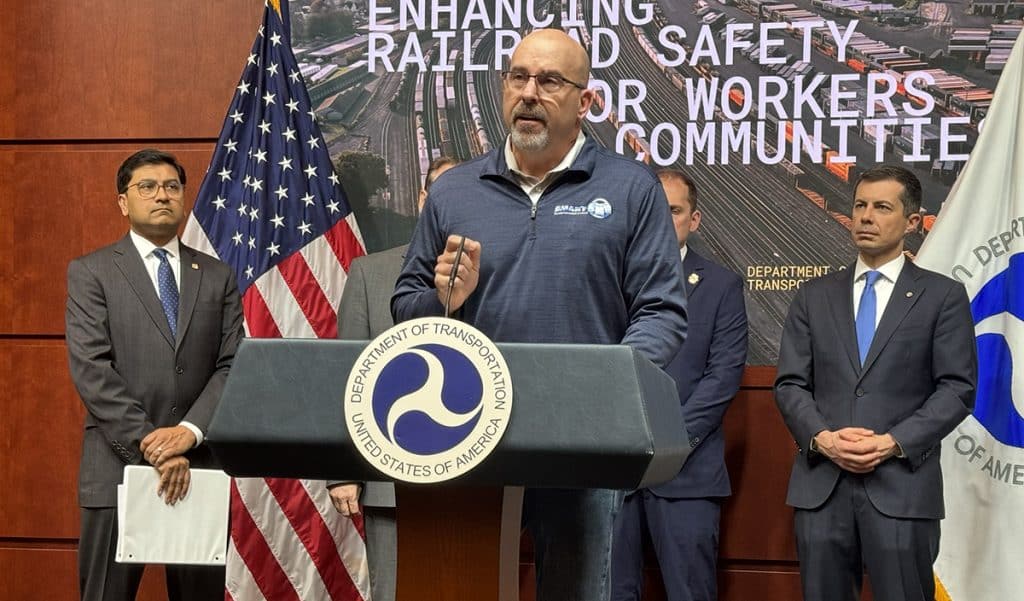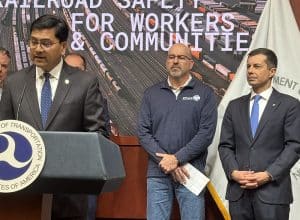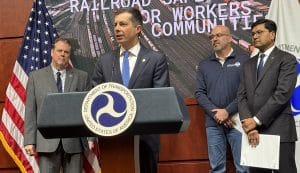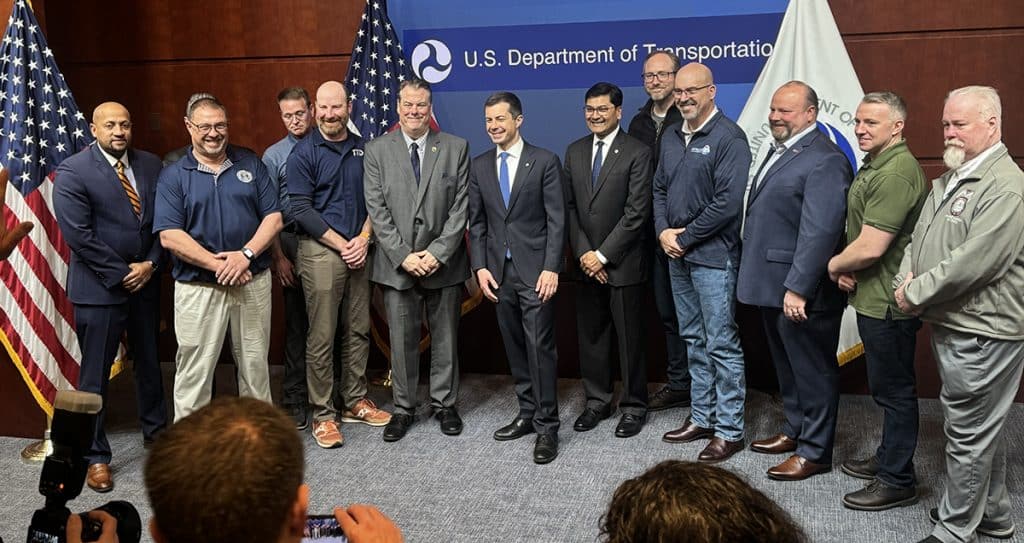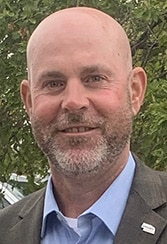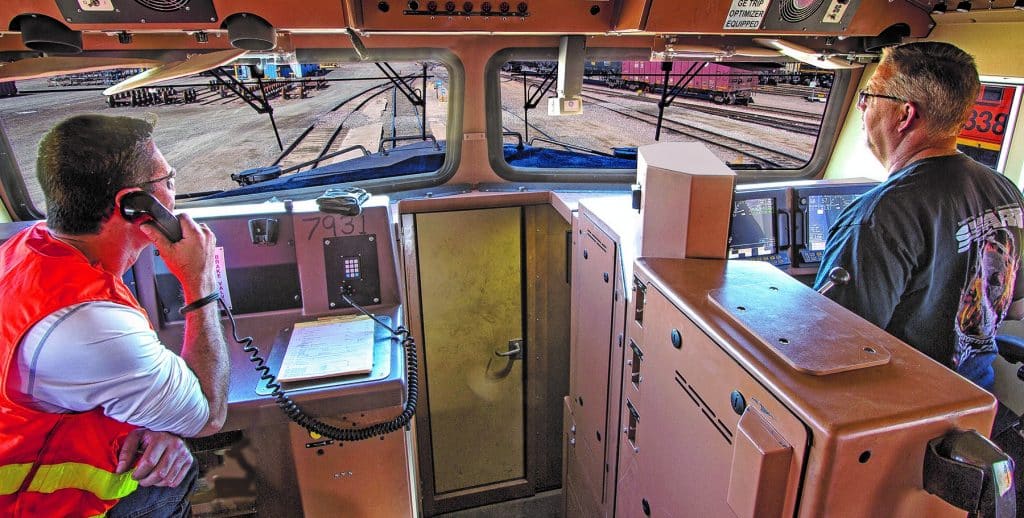
Railroad history was made the first week of April 2024. The U.S. Department of Transportation issued a final rule stating that freight trains in this country cannot be safely run with fewer than two certified railroaders in a locomotive cab.
History could not have been made without you. SMART-TD has been leading this fight for more than two decades. The FRA received over 13,000 public comments on this rule. Only 64 of those were against it. That is an amazing, concerted effort on the part of our members and allies that shows the power of solidarity. YOU beat the railroad executives and their deep pockets. It wasn’t even close.
The rule was announced by Transportation Secretary Pete Buttigieg and Federal Railroad Administrator Amit Bose on behalf of the Biden administration. SMART-TD President Jeremy Ferguson then spoke of the efforts of rail families, concerned members of the public and, most importantly, the experiences of our union members inside the rail cab.
The quality of what you wrote, not just the raw number of responses, is what truly moved the needle. Your personal experiences opened the eyes of the FRA to the lives that were saved and the potential disasters averted by the presence of a second person in the cab. Your experiences could not be denied. Thank you, from your union brothers and sisters, and on behalf of every American who lives, works or plays near a set of tracks.
We also would like to thank Wes Ekstedt, out of Local 445 in Galesburg, Illinois, who formed the “Fight For 2-Person Crews” Facebook page and website. Justin Wolters, from Local 1381 and general chairperson of the Indiana Harbor Belt Railroad, and Nick Greficz, local chairperson from Local 278, were among the leaders of a page called “We the Union” that helped coalesce union efforts.
These leaders never missed an opportunity to advocate to the public and protect safety. They helped create a movement.
It is no secret that the 2PC effort helped unite all 12 rail labor organizations under the umbrella of the Transportation Trades Department of the AFL-CIO. The message was also echoed by our friends in other labor unions outside of the rail industry. The rule announcement was introduced by David Hoagland, President of the District of Columbia Fire Fighters Association. Experienced first responders know who to rely on when there is a rail-related accident. The International Association of Fire Fighters strongly advocated for this ruling, and we express gratitude for their assistance.
Thanks also to The National League of Cities who provided unwavering support and advocacy for safe rail operations in our country.
SMART-TD Auxiliary President Kathryn Seegmiller and Secretary and Treasurer Denise “Niki” Wallace do amazing work advocating for this and many other legislative movements. On the issue of 2PC, they raised awareness and coordinated action through many routes, including text message campaigns to members to bolster both national level and state legislation.
It would be remiss not to thank the state legislative directors in every state who have pushed for 2PC legislation. As we all know and have celebrated, 12 states achieved the governor’s signature on legislation or had regulations on minimum crew size on the books before the FRA’s historic announcement. Unquestionably, whether a bill passed or not, the efforts made in the state houses were instrumental in the national push. Every time one of our SLDs presented legislation on the matter, it created public discussion and awareness of the critical role conductors play in protecting their communities. For all the state directors who fought the good fight for rail safety, we thank you and congratulate you on winning the war.
All in all, there are too many people to thank to have any hope of mentioning everyone. Our union is stronger than ever, the community we have built around us is active and engaged, and together we put the rail bosses on notice. We are watching, and we will use our collective strength to protect public and worker safety however inconvenient that becomes for the profit-at-all-cost railroads and their owners.
We thank all of our members and advocates for everything they did to bring the fight this far. Your efforts have been seen, and we have seen the results, but there is work left to do. Every new administration brings the risk of new regulations. We need to protect the progress that we have made. Now that the FRA’s 2PC rule is a reality it is time to focus on passing the Railway Safety Act.
